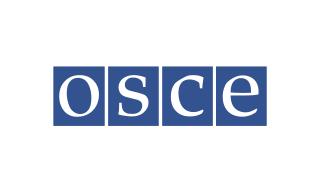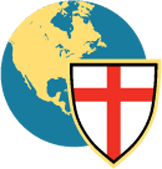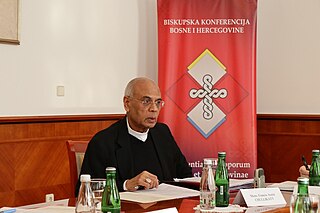Related Research Articles

The Organization for Security and Co-operation in Europe (OSCE) is a regional security-oriented intergovernmental organization comprising member states in Europe, North America, and Asia. Its mandate includes issues such as arms control, the promotion of human rights, freedom of the press, and free and fair elections. It employs around 3,460 people, mostly in its field operations but also in its secretariat in Vienna, Austria, and its institutions. It has observer status at the United Nations.

The United Nations Framework Convention on Climate Change (UNFCCC) is the UN process for negotiating an agreement to limit dangerous climate change. It is an international treaty among countries to combat "dangerous human interference with the climate system". The main way to do this is limiting the increase in greenhouse gases in the atmosphere. It was signed in 1992 by 154 states at the United Nations Conference on Environment and Development (UNCED), informally known as the Earth Summit, held in Rio de Janeiro. The treaty entered into force on 21 March 1994. "UNFCCC" is also the name of the Secretariat charged with supporting the operation of the convention, with offices on the UN Campus in Bonn, Germany.

The International Organization for Migration (IOM) is a United Nations related organization working in the field of migration. The organization implements operational assistance programmes for migrants, including internally displaced persons, refugees, and migrant workers.

The United Nations Mission in Bosnia and Herzegovina (UNMIBH) was a United Nations peacekeeping mission formed under the United Nations Security Council Resolution 1035 on 21 December 1995. It completed its mandate on 31 December 2002, when it was succeeded by the European Union Police Mission in Bosnia and Herzegovina.

Sex trafficking is human trafficking for the purpose of sexual exploitation. It has been called a form of modern slavery because of the way victims are forced into sexual acts non-consensually, in a form of sexual slavery. Perpetrators of the crime are called sex traffickers or pimps—people who manipulate victims to engage in various forms of commercial sex with paying customers. Sex traffickers use force, fraud, and coercion as they recruit, transport, and provide their victims as prostitutes. Sometimes victims are brought into a situation of dependency on their trafficker(s), financially or emotionally. Every aspect of sex trafficking is considered a crime, from acquisition to transportation and exploitation of victims. This includes any sexual exploitation of adults or minors, including child sex tourism (CST) and domestic minor sex trafficking (DMST).

The Anglican Church in North America (ACNA) is a Christian denomination in the Anglican tradition in the United States and Canada. It also includes ten congregations in Mexico, two mission churches in Guatemala, and a missionary diocese in Cuba. Headquartered in Ambridge, Pennsylvania, the church reported more than 1,000 congregations and more than 128,000 members in 2023. The first archbishop of the ACNA was Robert Duncan, who was succeeded by Foley Beach in 2014. In June 2024, the College of Bishops elected Steve Wood as the third archbishop of the ACNA. Authority was transferred to him during the closing Eucharist at the ACNA Assembly 2024 conference in Latrobe, Pennsylvania.

Human trafficking is the trade of humans for the purpose of forced labour, sexual slavery, or commercial sexual exploitation.

Discussions of LGBTQI+ rights at the United Nations have included resolutions and joint statements in the United Nations General Assembly and the United Nations Human Rights Council (UNHRC), attention to the expert-led human rights mechanisms, as well as by the UN Agencies.
Ruchira Gupta is a journalist and activist. She is the founder of Apne Aap, a non-governmental organisation that works for women's rights and the eradication of sex trafficking.
The multilateral foreign policy of the Holy See is particularly active on some issues, such as human rights, disarmament, and economic and social development, which are dealt with in international fora.
In 2008, Ireland was one of many destination countries for women, men, and children trafficked for the purposes of commercial sexual exploitation and forced labor.
The United Nations Global Initiative to Fight Human Trafficking (UN.GIFT) is a multi-stakeholder initiative providing global access to expertise, knowledge and innovative partnerships to combat human trafficking.

Francis Assisi Chullikatt JCD is an Indian-born prelate of the Catholic Church. He has been the Apostolic Nuncio to Bosnia and Herzegovina and Montenegro since 1 October 2022. He was the Permanent Observer of the Holy See to the United Nations from 17 July 2010 until 1 July 2014. He previously served as Apostolic Nuncio to Iraq and Jordan, and to Kazakhstan, Tajikistan and Kyrgyzstan from 30 April 2016 until 1 October 2022.
Anne Therese Gallagher is an Australian lawyer who since 2019 has been the Director-General of the Commonwealth Foundation. She is a former President (2018-2022) of the International Catholic Migration Commission, Co-Chair of the International Bar Association’s Presidential Task Force on Human Trafficking, and member of the Asia Dialogue on Forced Migration. She is considered to be an international authority on transnational criminal law, migration and human rights and, according to the 2012 Trafficking in Persons Report prepared by the United States Department of State, is 'the leading global expert on the international law on human trafficking’.

The Blue Heart Campaign is an international anti-trafficking program started by the United Nations Office on Drugs and Crime (UNODC). Established in 1997, the UNODC supported countries in implementing three UN drug protocols. In 2000, after the UN General Assembly adopted the Protocol to Prevent, Suppress and Punish Trafficking in Persons, the UNODC became the “guardian” of that protocol and assumed the functions of fighting against human trafficking. The Blue Heart Campaign was launched in March 2009 by the Executive Director of the UNODC, Antonio Maria Costa, during his address to the World's Women's Conference meeting in Vienna. The campaign's symbol is a blue heart. The Blue Heart Campaign uses its website, as well as Facebook, Twitter, YouTube, and Flickr to communicate goals, objectives, and news with the public.

The National Action Plan to Combat Human Trafficking is a four-year action plan that was established by the Government of Canada on June 6, 2012 to oppose human trafficking in Canada. In 2004, the government's Interdepartmental Working Group on Trafficking in Persons was mandated to create a national anti-human-trafficking plan, but the mandate went unfulfilled despite reminders from politicians and non-governmental organizations (NGOs). Member of Parliament (MP) Joy Smith put forward motion C-153 in February 2007 to put a plan in place, and the House of Commons passed it unanimously. Smith began developing a proposal and released it in September 2010 under the title "Connecting the Dots". University of British Columbia law professor Benjamin Perrin helped guide Smith's writing of the proposal. Before the establishment of the NAP-CHT, a variety of people and organizations—including the 2009 and 2010 Trafficking in Persons (TIP) Reports of the United States Department of State—criticized Canada for failing to have such a plan.
The United Nations Voluntary Trust Fund for Victims of Trafficking in Persons is a United Nations establishment to provide humanitarian, legal and financial aid to victims of human trafficking with the aim of increasing the number of those rescued and supported, and broadening the extent of assistance they receive. It was launched on 4 November 2010 by U.N. Secretary-General Ban Ki-moon,

Maria Grazia Giammarinaro is an Italian judge and policy-maker.
The Permanent Observer of the Holy See to the Organization of American States is a diplomatic post of the Holy See. First appointed in 1978, the position had been given to the Vatican's diplomat to the United States until 2012. In 2012, Pope Benedict XVI appointed the Holy See's Permanent Observer to the United Nations in New York to the post. Pope Francis and Secretary of State Pietro Parolin maintained that new pattern in 2014, and then in 2019 appointed the first observer to hold only that position.
Taimalelagi Fagamalama Tuatagaloa-Leota is a Samoan Anglican archdeacon in the Anglican Church of Aotearoa, New Zealand and Polynesia. She served as the UN Observer for the Anglican Communion from 2001 to 2006. Before being ordained as a priest, she was the first lay archdeacon in the Diocese of Polynesia.
References
- ↑ "UAE active in fight against human trafficking Gargash". Khaleej Times . October 18, 2010. Archived from the original on December 10, 2013. Retrieved December 3, 2013.
- ↑ G. Dadashova (October 6, 2011). "Kyrgyzstan makes significant efforts to combat organized crime". Trend News Agency . Retrieved December 3, 2013.
- ↑ Trevor Bhupsingh (May 13, 2013). "Statement by Mr. Trevor Bhupsingh, Director General, Public Safety Canada, to the High-level meeting on the appraisal of the Global Plan of Action to Combat Trafficking in Persons". Government of Canada . Retrieved December 3, 2013.
- ↑ International Migration Outlook 2012. Organisation for Economic Co-operation and Development. 2012. p. 112. ISBN 978-9264177239.
- ↑ "UNESCO General Conference adopts resolution on human trafficking". Belarusian Telegraph Agency . November 22, 2013. Archived from the original on December 18, 2013. Retrieved December 3, 2013.
- ↑ "Hollywood actors join UN in launching trust fund". Daily Times . November 6, 2010. Retrieved December 3, 2013.
- ↑ "Resolution 15.10: The trafficking of persons" (PDF). Anglican Communion. October 2012. Archived from the original (PDF) on September 3, 2013. Retrieved December 3, 2013.
- ↑ "Canada Participates in UN General Assembly High-Level Meeting to Assess the Implementation of the Global Plan of Action to Combat Human Trafficking" (PDF). Canada's Anti-Human Trafficking Newsletter. No. 3. July 2013. pp. 3–4. Retrieved October 29, 2013.
- ↑ Francis Chullikatt (May 13–14, 2013). "Interventions: Statements of the Permanent Observer Mission of the Holy See to the United Nations". Permanent Observer of the Holy See to the United Nations. Archived from the original on December 12, 2013. Retrieved December 3, 2013.
- ↑ "UN seeks global effort to combat human trafficking". Premium Times . May 14, 2013. Retrieved December 3, 2013.